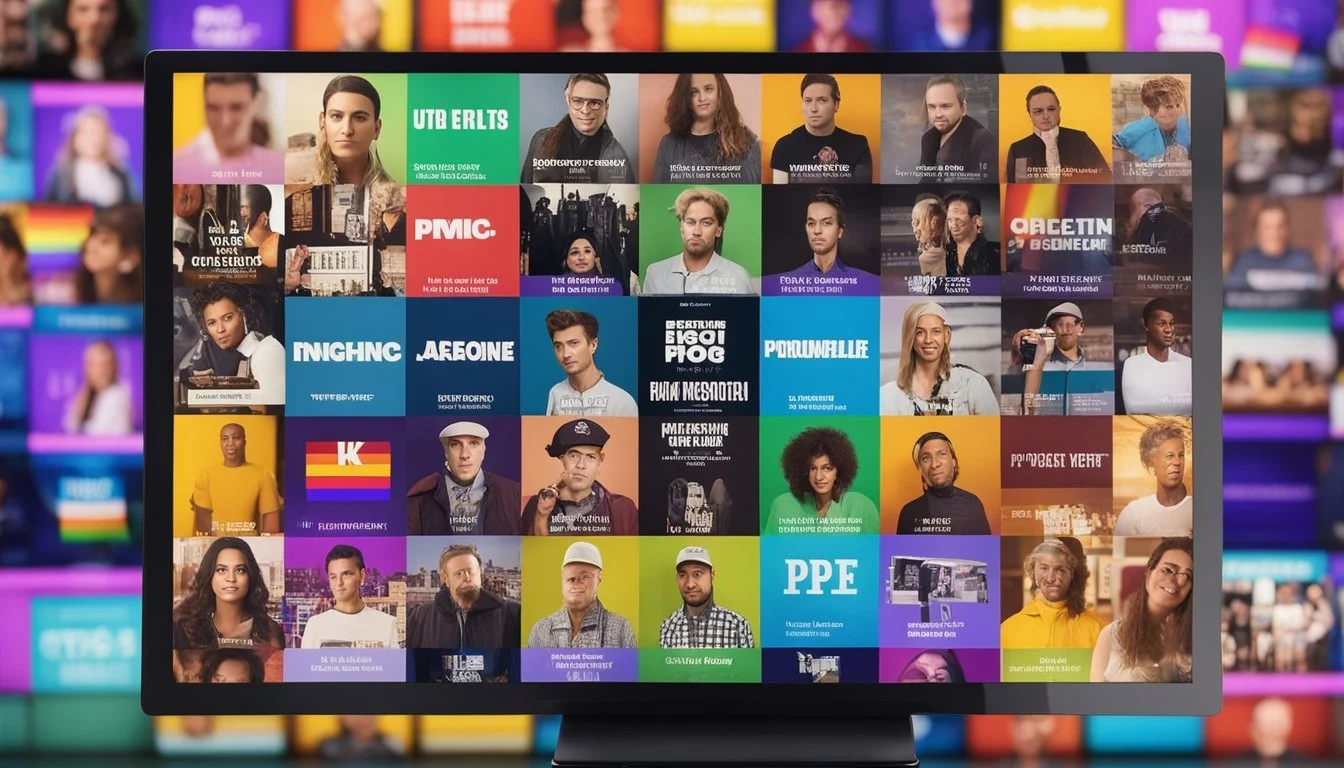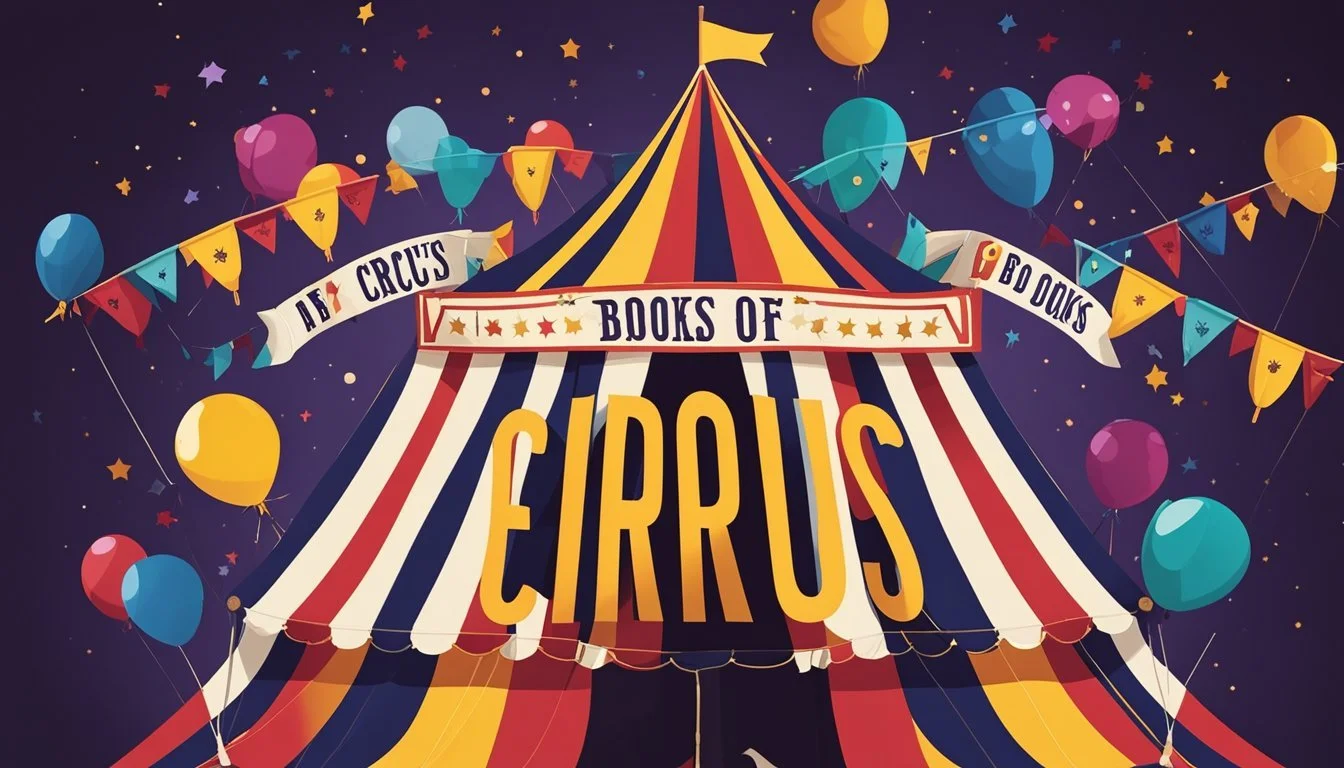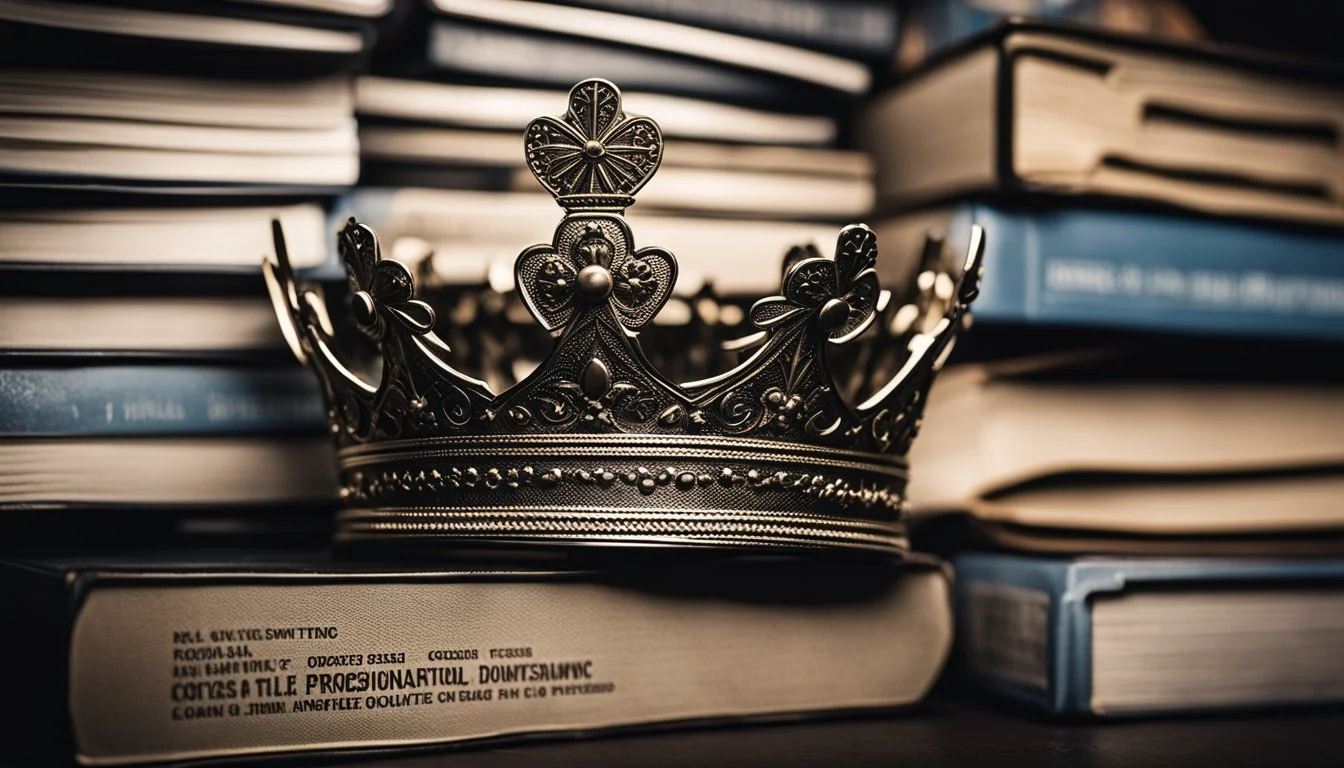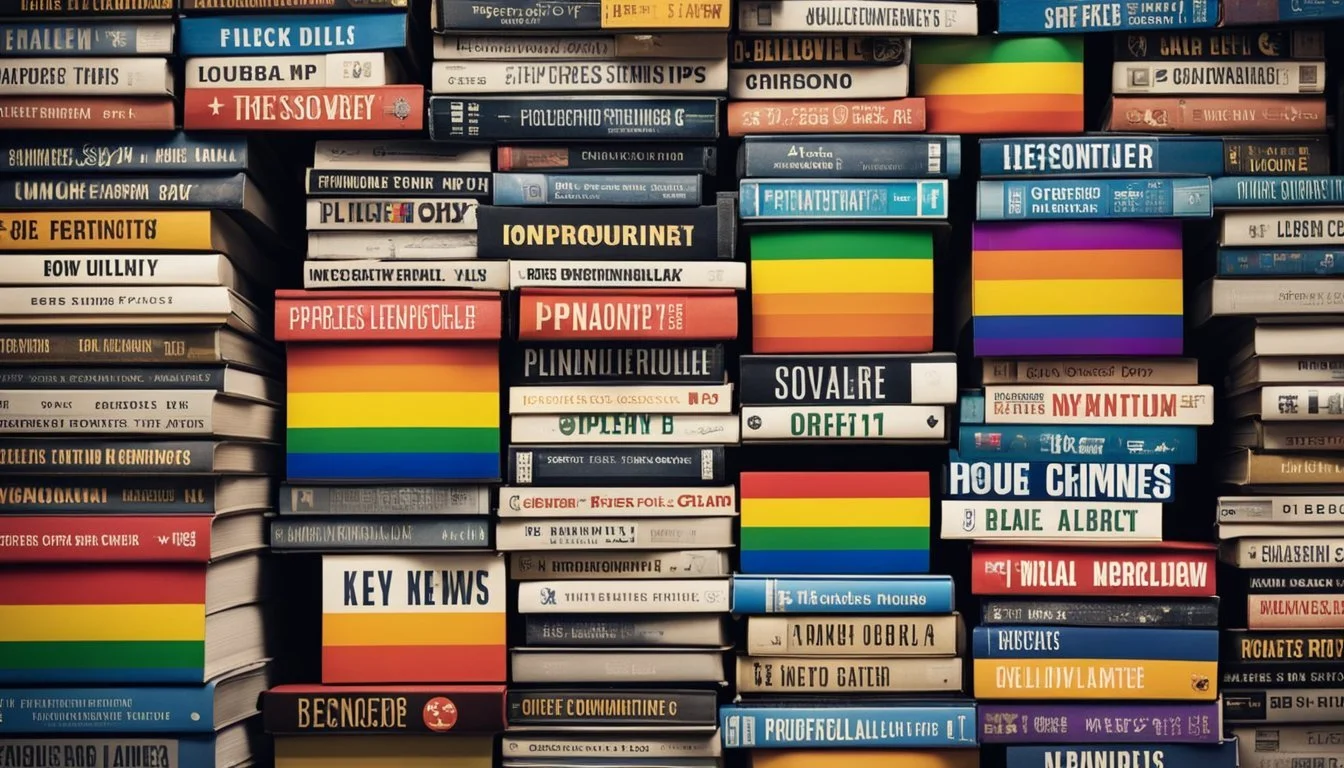7 True Crime Documentaries About LGBTQ+ Individuals
Must-See Stories and Insights
True crime documentaries offer a captivating glimpse into some of the most complex and compelling stories of LGBTQ+ individuals. These films not only explore the intricate details of crimes but also highlight the social and cultural challenges faced by the LGBTQ+ community.
By shining a light on these stories, viewers gain a deeper appreciation for the resilience and struggles of LGBTQ+ individuals. This collection of documentaries provides both an educational and immersive experience, fostering a better understanding of the unique issues within the community.
1) The Death and Life of Marsha P. Johnson (2017)
This documentary, directed by David France, explores the mysterious death of Marsha P. Johnson, a prominent figure in the gay rights movement and a veteran of the Stonewall riots.
Victoria Cruz, a fellow activist, leads the investigation into Johnson’s death in 1992, probing the circumstances and raising questions about anti-LGBT violence.
The film uses archival footage and interviews with Johnson’s friends, family, and other activists to shed light on her life and untimely death.
Cruz's efforts to uncover the truth highlight the ongoing struggles faced by the LGBTQ+ community, especially trans women of color.
More information can be found on IMDb.
2) Paris Is Burning (1990)
"Paris Is Burning" offers an in-depth look into the ball culture of New York City, specifically within Black and Latinx queer communities. Directed by Jennie Livingston, the documentary highlights the significance and complexity of this underground world.
The film captures the lives and struggles of its participants, known as "house" members. These houses serve as surrogate families, providing support and acceptance to individuals often marginalized by broader society.
The documentary is celebrated for its raw portrayal of voguing, “realness,” and the battles participants face against systemic issues like racism, homophobia, and poverty. Through candid interviews and intimate footage, viewers gain a nuanced perspective on the resilience of these communities.
Paris Is Burning has earned critical acclaim and remains an important cultural artifact that underscores the power of identity and community. The film helps audiences understand the intersections of race, gender, and sexuality in a way that resonates even decades after its release.
For more information, visit Paris Is Burning on IMDb.
3) A Secret Love (2020)
"A Secret Love" is a moving documentary that reveals the long-hidden romantic relationship between Terry Donahue and Pat Henschel. Directed by Chris Bolan, the film delves into their nearly seven-decade-long love story. Despite societal pressures, they maintained their relationship in secrecy from their families and the world.
The film captures the essence of their bond, illustrating the complexities and depth of their love. It follows their journey from the days of hiding to finally coming out later in life. The documentary has been highly praised for its heartfelt portrayal of lesbian love.
A significant part of the film also touches on Terry Donahue's career as a professional baseball player, which adds another layer to their incredible life story. Through personal interviews and old photographs, "A Secret Love" offers a genuine look into the lives of LGBTQ+ individuals who have paved the way for future generations.
For more information, visit the IMDb page.
4) Circus of Books (2020)
Circus of Books tells the story of a Jewish couple who ran a Los Angeles bookstore. This store became a central hub for the local LGBTQ+ community.
The documentary highlights the bookstore's significance as a safe space for LGBTQ+ individuals. It also touches on the couple's unexpected role in managing such an establishment.
The film offers a unique perspective on LGBTQ+ history. It details how the store was once a major distributor of gay pornography.
The daughter of the owners directed the documentary, providing personal insights.
The film is available for viewing on Netflix.
5) Stonewall Uprising (2010)
"Stonewall Uprising" documents the pivotal moment in LGBTQ+ history when patrons of the Stonewall Inn in New York City stood up against police harassment. The events began on June 28, 1969, and marked the start of violent protests that would last for six days.
The documentary presents raw interviews and archival footage, capturing the emotions and contexts of that time. The Stonewall riots are credited with igniting the gay liberation movement, fundamentally changing the fight for LGBTQ+ rights in the United States.
Produced by PBS, this film includes first-hand accounts from people who were there, offering an authentic look at the resistance and resilience of the LGBTQ+ community. It's an essential documentary for understanding the roots of modern LGBTQ+ activism.
For more information, visit IMDb.
6) The Queen (1968)
"The Queen" is a groundbreaking documentary from 1968. It showcases the drag scene in New York City, focusing on the 1967 Miss All-America Camp Beauty Pageant. Directed by Frank Simon, it offers an intimate look into drag culture during a time when LGBTQ+ individuals faced significant societal challenges.
The film provides insights into the lives of the contestants, their ambitions, and struggles. It captures candid backstage moments, highlighting the competitors' personalities and experiences. This adds depth to the portrayal of the queen's resilience and creativity.
Through its documentation of the pageant and the fierce competition involved, "The Queen" also sheds light on the broader dynamics of the LGBTQ+ community of the era. Viewers gain a better understanding of the bravery and artistry within the drag scene, as well as the cultural significance of these performances.
To learn more about "The Queen," visit its IMDb page.
7) Pride (2014)
"Pride" is a documentary that explores the intersection of LGBTQ+ rights and labor movements during the 1984-85 miners' strike in the United Kingdom. The film highlights how a diverse group of LGBTQ+ activists supported the striking miners.
The documentary captures the struggles and triumphs of this unlikely alliance, showing how solidarity and shared goals can bridge different communities.
It provides a historical look at the efforts of Lesbians and Gays Support the Miners (LGSM), a group that raised funds and awareness for the miners’ cause. This alliance had a significant impact on the UK LGBTQ+ rights movement.
"Pride" emphasizes the power of intersectional activism. The documentary offers a poignant reminder of the importance of unity and collaboration in the fight for justice and equality.
For more information about "Pride" (2014), visit IMDb.
Historical Context of LGBTQ+ True Crime
Examining the history of LGBTQ+ true crime involves understanding early media depictions and how these influenced societal attitudes over time.
Early Representations in Media
Early representations of LGBTQ+ individuals in media often mirrored prevailing social prejudices and stereotypes. True crime stories from the early 20th century commonly portrayed LGBTQ+ characters in a negative light. These depictions emphasized criminality and deviance, reinforcing negative societal attitudes toward the LGBTQ+ community.
Tabloid newspapers and sensationalist media often exaggerated details, casting LGBTQ+ individuals as dangerous or untrustworthy. These stories contributed to a climate of fear and suspicion. The lack of diverse representations meant that readers and viewers had few positive images to counterbalance these negative portrayals. This media bias had a lasting impact on public perceptions and law enforcement practices.
Shifts in Public Perception
The latter half of the 20th century saw a gradual shift in how LGBTQ+ individuals were portrayed in true crime media. Increased visibility of LGBTQ+ rights movements prompted more nuanced and sympathetic portrayals. Documentaries and investigative journalism began to highlight systemic bias and injustices faced by LGBTQ+ individuals.
Significant cases, such as the murders of Harvey Milk and Brandon Teena, received widespread media coverage, drawing attention to hate crimes and discrimination. These stories were framed in ways that humanized the victims and highlighted the specific dangers faced by the LGBTQ+ community. Slowly, this led to greater public awareness and a push for legal protections and social acceptance.
Impact on LGBTQ+ Communities
True crime documentaries about LGBTQ+ individuals have profound effects on communities, shedding light on crucial issues and influencing both awareness and emotional well-being. The importance of these impacts is highlighted below.
Awareness and Advocacy
True crime documentaries serve as powerful tools to raise awareness about the challenges and injustices faced by LGBTQ+ individuals. These films often expose systemic issues within legal systems, biases, and societal prejudices that LGBTQ+ people encounter. Inclusive storytelling in these documentaries ensures that victims’ stories and the broader context of LGBTQ+ rights are highlighted.
By documenting these cases, filmmakers often catalyze advocacy movements. Viewers become more informed and driven to support changes in policies and community initiatives. These documentaries can inspire activism, pushing for greater protection and equal rights for LGBTQ+ individuals everywhere. The educational aspect of these documentaries is indispensable to fostering a more just and inclusive society.
Psychological and Emotional Effects
While informative, these documentaries can have complex psychological impacts on viewers, especially those within the LGBTQ+ community. Watching real-life accounts of violence and discrimination can evoke feelings of trauma and anxiety, highlighting the persistent dangers faced by the community. However, these films can also serve as sources of validation, showing that their struggles are recognized and legitimate.
For some, the narratives within these documentaries provide solidarity and empathy, strengthening communal bonds. They portray resilience and the fight against prejudice, offering hope amidst adversity. This duality—wherein documentaries heal and hurt—underscores the profound emotional depth they bring to viewers, making them essential yet emotionally challenging resources for understanding and coping with LGBTQ+ issues.
Challenges in Producing LGBTQ+ True Crime Content
Producing true crime content about LGBTQ+ individuals involves navigating specific challenges. Key considerations include ensuring ethical storytelling and balancing sensitivity with authenticity when depicting these cases.
Ethical Considerations
Ethical issues arise frequently in LGBTQ+ true crime content. Misrepresentation can perpetuate harmful stereotypes, so careful research and respectful framing are essential.
Privacy concerns are also critical. Families and survivors often contend with ongoing trauma, making it vital to obtain proper consent for their stories. Ethical producers must ensure that they handle delicate matters like outing someone posthumously with the utmost care.
Accurate representation is crucial. The identities and experiences of LGBTQ+ individuals must be portrayed authentically to avoid further marginalization. The ethical approach involves genuine engagement with the community and subject matter experts to portray the truth responsibly.
Balancing Sensitivity and Authenticity
Balancing sensitivity with the need for authentic storytelling presents a significant challenge. Producers must handle the tragic aspects of true crime with sensitivity, avoiding sensationalism.
Explicit content should be managed thoughtfully, bearing in mind the potential impact on viewers and the broader community. It’s important not to minimize the violence faced by LGBTQ+ individuals, yet this must be presented without exploiting their suffering.
Engaging with LGBTQ+ advocacy groups can ensure that content remains respectful and accurate. Authenticity in representation helps to foster understanding and awareness, but it requires a careful balance to avoid retraumatizing victims or their families.
Addressing these challenges thoughtfully ensures that LGBTQ+ true crime content is both meaningful and respectful.








